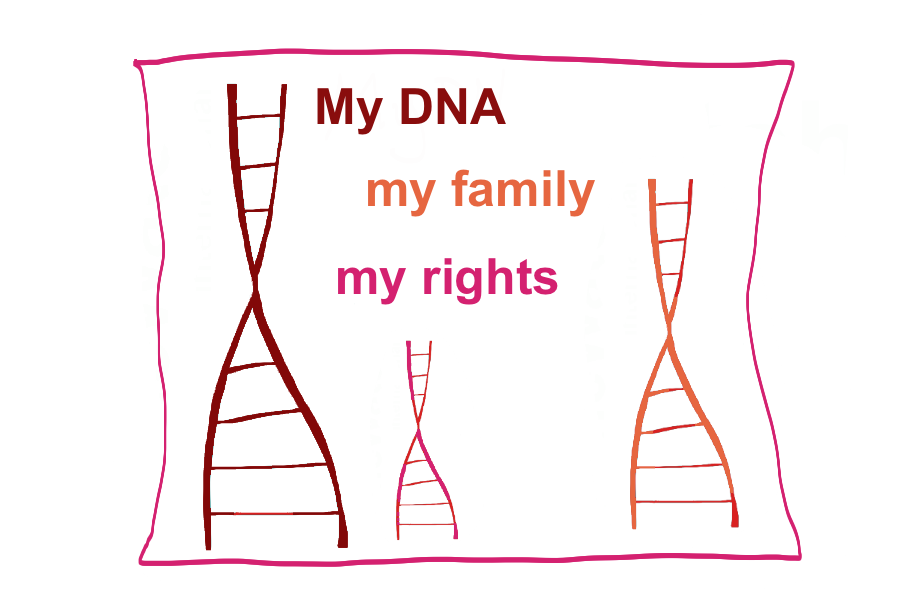Commercial Interests in DNA databases
As more people buy consumer DNA tests such as those used to provide ‘ancestry’ information, commercial companies are amassing millions of consumer’s genetic profiles in their databases. In the US alone, by the start of 2019, more than 26 million people had reportedly added their DNA to the four leading commercial ancestry and health databases, and numbers continue to expand globally.
In the era of ‘big data’, information technology is changing the way industries operate. Data-producing platforms are increasingly used by businesses to provide insights and applications, and drive new industries in the form data collection, storage and processing, as well as in the skills for data analysis to harvest value from the information. Data is becoming one of the world’s most valued commodities.
As commercial DNA databases expand, genetic data also presents the opportunity to become part of this lucrative market, turning each individual’s DNA that is shared with a company into a valuable asset that can potentially be monetized. By combining genomics data with other healthcare, pharmaceutical, insurance, consumer and behavioural data, companies may increasingly use genetic data for marketing campaigns.
Many companies have already moved into the genomics economy, including big names such as Google, Virgin and Blackstone. In 2021, Virgin Group’s VG Acquisition Corp. finalised a deal to get 23andMe to go public via a merger. They thus acquired 23andMe’s database of its 11 million consumers. Virgin Group is already involved in healthcare, being one of the current, leading private healthcare providers for the UK’s National Health Service. They are also involved in advancing digital health platforms that have become increasingly common in recent years. The merger and other commercial acquisitions are promoted by supporters as an opportunity to further expand the use of genetics in health, for example by increasing the rate of detecting genetic links to rare diseases that are often hard to elucidate due to the scarcity of data. Such commercial moves into genetic data builds on existing collaborations between consumer genetics companies and the biotech industry, with pharmaceutical companies such as GSK partnering with 23andMe in 2018.
Genetic data could be used to market various products beyond health and ancestry tracking. Spotify is one of the more unique examples. The music streaming service recently started to market musical tastes to consumers based on their DNA profile submitted to 23andMe. While there is no evidence of any links between genetic information and music tastes, such marketing strategies may still serve to generate profit for those companies involved.
Blackstone, one of the world’s largest private equity companies, also bought Ancestry.com in 2018, and the genomes of 18 million people from across the world, along with it. Blackstone is best known for taking businesses private and for some of the biggest retail deals in history. It is now one of the world’s largest private landlords, and also owns a diverse set of businesses in retail, insurance and healthcare. For example, Blackstone recently collaborated with Pfizer, and works more generally on other late-stage drug development programs.
Companies that work directly with data, including Google and Amazon have also developed Cloud services to work with genetic information. Hosting data on cloud services can support a number of commercial industries along the value chain, providing computing power to store and share data, and analytical platforms designed to, for example, uncover novel drug targets for pharmaceutical companies.
With a simultaneous rise in public genetic research programs underway globally, there is further conflation between the various genetic industries, blurring the distinction between public, commercial and research interests. Sequencing companies such as Illumina are collaborating with public genomics programs, as well as Cloud services and pharmaceutical companies. Cloud services and other data platforms and policy initiatives are also being developed that can harmonise data-sharing across institutions, companies and borders, potentially facilitating industry access to genetics data gathered in the healthcare and research settings.
Illumina is a leading company in the production of genomics products such as DNA genotyping and sequencing machines, after many mergers, acquisitions and spin-offs that have facilitated its growth. Companies such as Illumina are set to gain from growing health, research and forensics DNA databases. Illumina’s DNA sequencing machines, as well as data analysis platforms are used by direct-to-consumer commercial DNA companies such as 23andMe, as well as by much larger national genomics and industry projects. For example, Illumina had contracts with the UK’s National Health Service’s previous genomics projects that have since evolved into Genomics England, now a private company that gains government contracts to work with the health service. Large-scale genomics projects offer companies such as Illumina a platform to sell their technologies, and also promote further industry engagement in the realms of pharmaceutical, biotechnology and data investments. Indeed, Illumina has several partnerships with pharmaceutical and data companies include Roche, Merck, and Amazon.
While some companies currently state that they will not share genetic information with third party users, the changing ownership of commercial genetic information is raising privacy concerns. Current regulations are not abreast with the rise of big data, and its sharing across sectors and borders. Such uncertainties raise questions about the security of vast genetic databases that may additionally be accessed by both state and non-state actors (see Police and Immigration).
